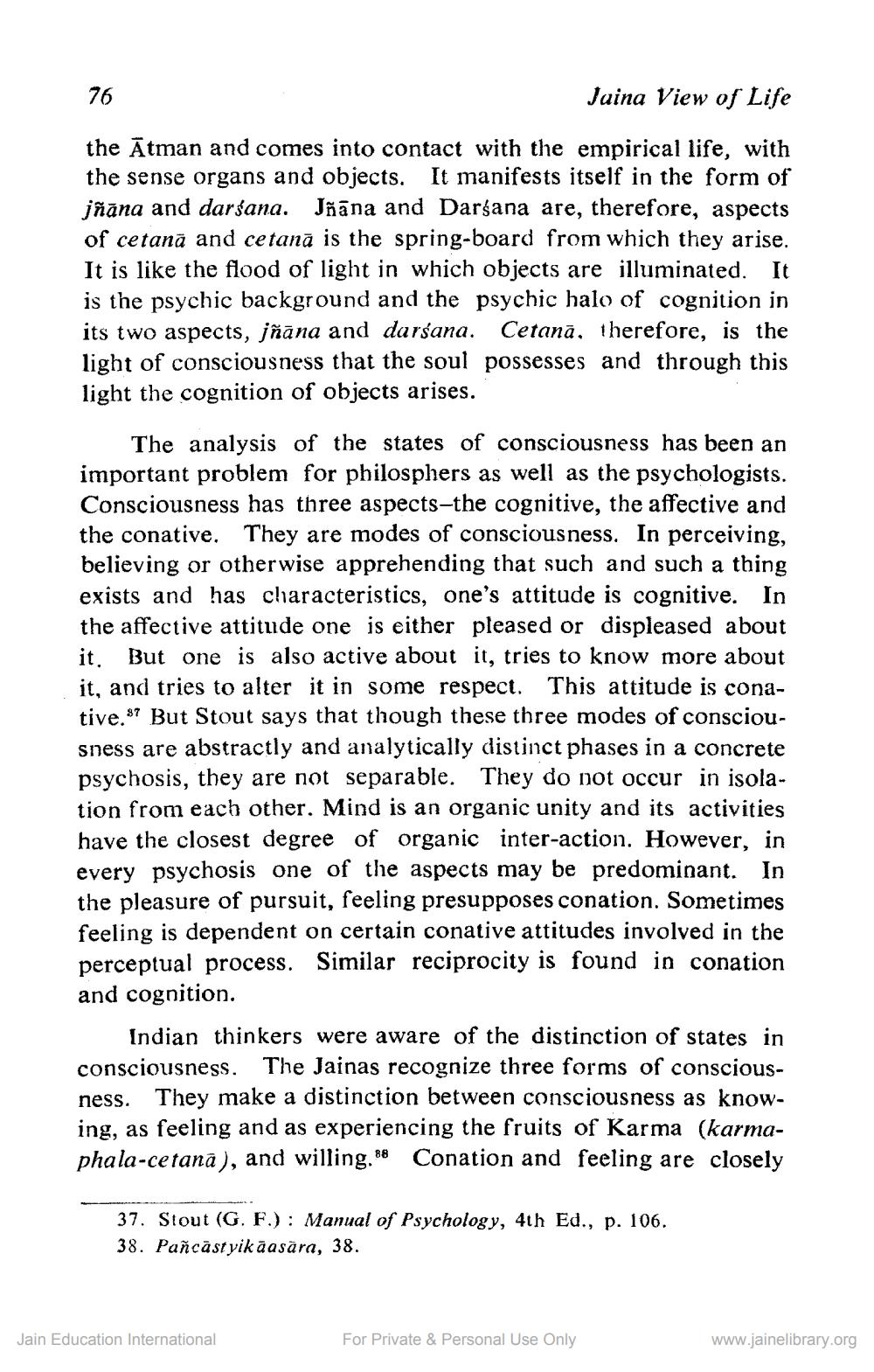________________
76
Jaina View of Life
the Atman and comes into contact with the empirical life, with the sense organs and objects. It manifests itself in the form of jñāna and darsana. Jñāna and Darśana are, therefore, aspects of cetana and cetana is the spring-board from which they arise. It is like the flood of light in which objects are illuminated. It is the psychic background and the psychic halo of cognition in its two aspects, jñāna and darsana. Cetana, therefore, is the light of consciousness that the soul possesses and through this light the cognition of objects arises.
The analysis of the states of consciousness has been an important problem for philosphers as well as the psychologists. Consciousness has three aspects-the cognitive, the affective and the conative. They are modes of consciousness. In perceiving, believing or otherwise apprehending that such and such a thing exists and has characteristics, one's attitude is cognitive. In the affective attitude one is either pleased or displeased about it. But one is also active about it, tries to know more about it, and tries to alter it in some respect. This attitude is conative. But Stout says that though these three modes of consciousness are abstractly and analytically distinct phases in a concrete psychosis, they are not separable. They do not occur in isolation from each other. Mind is an organic unity and its activities have the closest degree of organic inter-action. However, in every psychosis one of the aspects may be predominant. In the pleasure of pursuit, feeling presupposes conation. Sometimes feeling is dependent on certain conative attitudes involved in the perceptual process. Similar reciprocity is found in conation and cognition.
Indian thinkers were aware of the distinction of states in consciousness. The Jainas recognize three forms of consciousness. They make a distinction between consciousness as knowing, as feeling and as experiencing the fruits of Karma (karmaphala-cetana), and willing. Conation and feeling are closely
88
37. Stout (G. F.): Manual of Psychology, 4th Ed., p. 106.
38. Pañcastyikāasāra, 38.
Jain Education International
For Private & Personal Use Only
www.jainelibrary.org




